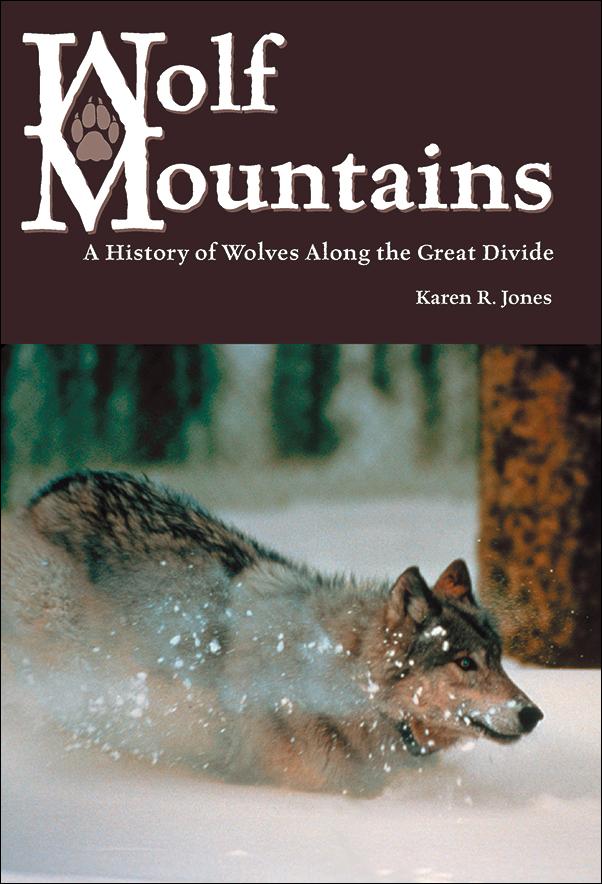
Wolf Mountains: A History of Wolves along the Great Divide
Karen R. Jones
$29.99 CAD / $29.99 USD (S)
346 pages, 12 illustrations
6 x 9 inches
Paperback: 978-1-55238-121-2
Library PDF: 978-1-55238-480-0
June 2003
Situating the wolf in the history of Canadian national parks, Karen Jones considers changing ideas of nature and wilderness and competing visions of the North American West.
Wolf Mountains is essentially a work of environmental history, treating the land as an actor in the historical process. This controversial study examines the tumultuous relationship between humans and wolves in four Rocky Mountain parks. By comparing the distinctive lupine histories of specific national parks with anecdotes and narratives of wolves from Aboriginals and early Europeans from the nineteenth and twentieth centuries, important shifts in attitude and policy are clearly shown.
Drawing on published scholarly research, archived newspapers, records from environmental groups, U.S. and Canadian park records, first-hand accounts from explorers and trappers, and scientific interviews with park staff and biologists, this book contributes enormously to our understanding of the relationship between wolves and humans.
Karen Jones is a senior lecturer in history at the University of Kent. She specializes in the history of the United States and the Canadian West, as well as North American environmental history.
Preface and Acknowledgments
Introduction: National Parks and the Wolf
Wolves in Yellowstone National Park
The Thunderer and the Canine Howls
The Changing Nature of Yellowstone National Park
The Wolf’s Last Stand in Yellowstone
From Dissenting Opinion to Park Policy
Lupine Ghosts in Yellowstone?
The Wolf Returns to Yellowstone
Wolves in Glacier in National Park
The Demise of Chief Wolf
The Establishment of Glacier Park
Wolf Policy in the Early Park
Wolf Policy in the Early Park
Changing Opinions in Glacier
The Rise and Fall of Wolf Fortunes in Glacier
Wolves Resettle in Glacier
Wolves in Banff National Park
From ‘Wolf Country’ to ‘Whoop-Up Trail’
The Establishment of Rocky Mountains Park
The Development of Predator Policy
From Changes to Wild Habitat: Re-Appraising the Wolf
Canine Battles in Banff National Park
Lupophobia and the Rabid Wolf
A Den of Wofl Defenders
Wolves Retake Banff
Wolf Paradise Lost?
Wolves in National Park
From Earth-Maker Wolf to the Fur Trapper
Nature, Railroad, and National Park
Wolf Policy in Jasper Park
Wrestling with Wardens and Wolves
From Outlaws to Lupine Legends
Nature’s Cycles and Human Constructions
Conclusion: The Trials and Trails of Wolf History
Exceptionalism in the Rocky Mountain Wolf Parks
Crossing National Park Boundaries
Restor(y)ing the Wolf
Epilogue: Legal Wrangles, Canine Appitites, and Shifting Cultural Attitudes
Notes
Bibliography
Index
Wolf Mountains is an exemplary work of scholarship nested in fluid analytical prose.
—John H Wadland, The Canadian Historical Review
Jones’s work demonstrates the interconnectedness of the Rocky Mountain parks and their wolves while at the same time recognizing that each park’s wolf history was and remains influenced by local, regional, and national interests.
—Kimberley Jarvis, Environmental History